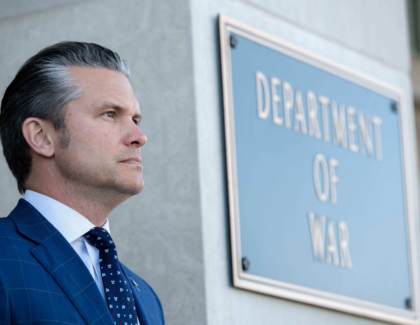Sign up for the daily CJR newsletter.
David Broder wrote yesterday:
I’d like to know what kind of people Obama would bring into his White House and where he would turn for a Cabinet, because there is so much uncertainty about his actual policies at home and abroad.
Really? Is there actually all that much “uncertainty” about Obama’s policies, all things considered? Doesn’t seem like it.
My point isn’t to single out Broder here (who, it should be noted, made the point in the service of a more sensible argument—that it’s a waste of time for the press to spend two weeks on Jeremiah Wright when there are so many more substantive issues to report on.) Indeed, the idea that Obama hasn’t laid out enough policy specifics has been one of the ongoing media memes of the primary campaign—stoked by Hillary Clinton herself, for example when she suggests that Obama’s speechmaking skill suggests he is about words, not deeds.
But by any reasonable measure, the charge is not true. If you look, you find that Obama is strong on specifics. If Broder or others in the media feel in the dark about his policies, they could always, you know, check out his Web site, which is loaded with specifics. Broder might argue that anyone can put some stuff up on a Web site. What matters is what the candidate himself has spelled out personally. Fair enough.
With that in mind, let’s compare Obama to McCain. On the single biggest domestic policy issue of the campaign, health care, Obama has laid out an admirably detailed plan. Indeed, he and Clinton have debated the merits of their similar plans at a level of detail that’s perhaps unprecedented in a modern presidential campaign.
McCain, by contrast, laid out a broad approach to health care in a recent speech. But when reporters pointed out weaknesses and pressed him on how those would be addressed, his campaign said specifics would be forthcoming. We’re still waiting.
On taxes, Obama has been consistent in calling for a repeal of the Bush tax cuts. McCain, on the other hand, opposed the tax cuts at the time Bush made them, but now supports them. At the very least, this suggests some degree of uncertainty.
And even on foreign policy, Obama has been no less specific than McCain—and arguably more. On Iraq, he has been relatively consistent in calling for a phased withdrawal of troops. McCain, meanwhile, has at times said we’ll leave as soon as the mission (whose definition has itself shifted several times over the years) is complete; while at others he’s looked forward to the idea of keeping American troops safely based in the Middle East for, variously, 100 or 1000 years.
On Iran, Obama has called for a greater emphasis to diplomacy to handle our differences. It’s true that he has largely refrained from spelling what that might mean in any detail, but it still compares favorably to McCain, who has joked about bombing Iran but hasn’t fleshed out a policy.
McCain also gave a speech which seemed to call for a “League of Democracies” as a counterweight to the UN—then, when that idea was criticized, backed off and said he was talking only about a “coalition of nations that shifts sometimes depending on what their priorities are.” Obama, along with foreign policy advisers like Samantha Power, Susan Rice, and Anthony Lake, have laid out an approach to international relations which aims to strengthen multilateral institutions as a means tackling global problems. In terms of specifics, advantage Obama.
So if anything, there may be less uncertainty about Obama’s policies than about McCain’s.
It’s hard to avoid the conclusion that when Broder and other Beltway pundits say there’s uncertainty about Obama’s policies, they’re not actually talking about his policies at all. They mean that, unlike McCain and Clinton, he doesn’t have an extensive track record of Washington relationships and alliances and prior battles fought that would allow the press corps to feel like he’s a known quantity.
And arguably, that’s a legitimate concern for Broder and his colleagues. It’s important for the press and public to know as much as they can about these candidates—not just about their policies, but about their character, their priorities, their background, etc. And on that level, we probably know less about Obama than about McCain and Clinton, both of whom have been under the Washington spotlight for many years.
But the idea that there’s an unusual amount of uncertainty about Obama’s policies just doesn’t hold up, and the press should stop repeating it.
Has America ever needed a media defender more than now? Help us by joining CJR today.






